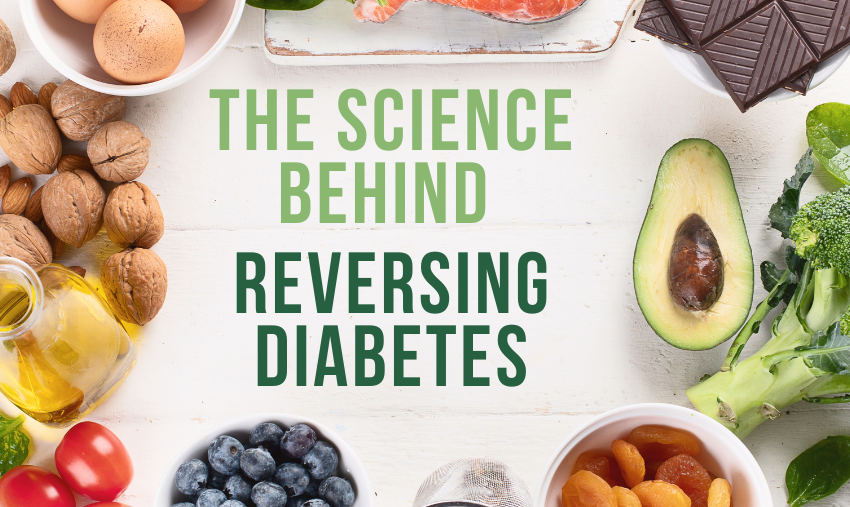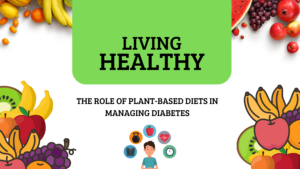Diabetes is a chronic health condition that affects millions of people worldwide. It’s characterized by high blood sugar levels resulting from problems with insulin production, function, or both. However, emerging research and clinical practice show that it’s possible to reverse diabetes and regain metabolic health. This monumental shift in perspective involves a comprehensive lifestyle change encompassing diet, exercise, and meditation. Today, we’ll delve into the science behind reversing diabetes and how these three fundamental pillars can help.
Understanding Diabetes
Before we dive into the strategies for reversing diabetes, let’s briefly discuss what diabetes is. Diabetes mellitus, commonly known as diabetes, is a metabolic disorder where the body cannot properly use the energy from food. This dysfunction occurs because the body either doesn’t produce enough insulin, a hormone that regulates blood sugar, or becomes resistant to its effects, leading to elevated blood sugar levels.
There are two main types of diabetes: Type 1 diabetes, an autoimmune condition where the body attacks and destroys insulin-producing cells in the pancreas, and Type 2 diabetes, where the body becomes resistant to insulin, and over time, the pancreas may also produce less insulin. Type 2 diabetes is the most common type and is closely tied to lifestyle factors like diet and physical activity.
The Role of Diet in Reversing Diabetes
Diet is the cornerstone of diabetes management and has a profound impact on blood sugar control. It’s not just about what you eat, but also how and when you eat. The nutritional content of your diet can either promote or hinder insulin function and blood sugar control.
The Detrimental Effects of Unhealthy Diets
Certain dietary components are known to exacerbate insulin resistance and contribute to the onset of type 2 diabetes. These include refined sugars, refined grains, refined oils, and trans fats, which are often found in processed foods.
Refined sugars cause rapid spikes in blood sugar, leading to increased insulin demand and potential insulin resistance over time. Similarly, refined grains can lead to swift rises in blood sugar and contribute to weight gain and insulin resistance. Refined oils, rich in inflammatory Omega-6 fatty acids, can increase inflammation and oxidative damage. Trans fats are particularly harmful, contributing to many serious diseases, including heart disease and diabetes.
The Benefits of Plant-Based Diets
On the other hand, a low-fat plant-based diet, known as a vegan diet, can have profound impacts on metabolic conditions like diabetes. A vegan diet excludes animal products like meat, eggs, dairy, and other animal-derived ingredients. Several clinical researchers have found that a vegan diet is three times more effective in controlling blood sugar than other diets typically recommended for people with diabetes by doctors.
A vegan diet, particularly a low-fat one, reduces the fat interfering with your hormones, allowing the insulin you naturally produce to bind correctly to the cell wall, opening a passage for glucose to enter the cell. Such a diet is also naturally abundant in vitamins, minerals, and phytonutrients, providing essential nutrients needed for optimal metabolic function. Moreover, if you focus on specific vegetables, you can also reduce the acidity in your body, reducing inflammation and providing antioxidants and nutraceuticals.
One significant shift in dietary habits that can greatly help manage and potentially reverse diabetes is starting your day with a nutrient-dense green smoothie to reduce the acidity built up overnight. This alkalizing habit can set a positive health trajectory for the rest of the day.
Consider incorporating more whole grains, fruits, vegetables, and legumes into your meals. Start small by substituting one meal a day with a plant-based meal. A simple green smoothie for breakfast could be a great starting point. Here’s a quick recipe:
- 1 cup of spinach
- 1 banana
- 1/2 a cup of blueberries
- 1 cup of almond milk
- A sprinkle of chia seeds
Blend all the ingredients together, and you have a nutrient-packed breakfast ready in minutes.
Exercise and Diabetes Reversal
Exercise is another crucial pillar in the journey to reversing diabetes. Regular physical activityhelps the body utilize insulin more efficiently, leading to better blood sugar control. It also offers a slew of other health benefits, from a healthier heart and stronger bones to improved blood pressure and cholesterol levels.
Yoga and Anti-Gravity Exercises
Certain types of exercise can be particularly beneficial for people with diabetes. Yoga exercises, for instance, are a great way to manage blood sugar levels. They improve flexibility, reduce stress, increase overall strength and balance, and enhance blood circulation, reducing inflammation throughout the body. Moreover, anti-gravity exercises, such as aerial or inversion yoga, improve circulation and reduce stress while strengthening muscles and improving balance. These exercises can be performed in the comfort of your home or a hotel room when traveling, making them a convenient option for many people.
Regular yoga practice can help reduce stress levels, enhance mobility, lower blood pressure, and improve overall well-being. Health experts believe these benefits can improve diabetes management and protect against other related medical conditions such as heart disease.
Here’s a simple yoga routine that you can try at home:
- Sun Salutations (5 rounds)
- Downward Dog Pose (hold for 30 seconds)
- Tree Pose (hold for 30 seconds on each side)
- Bridge Pose (hold for 30 seconds)
- Corpse Pose (relax for 5 minutes)
Please remember to consult with your healthcare provider before starting a new exercise routine.
Meditation as a Tool to Reverse Diabetes
Stress plays a significant role in blood sugar management. When we experience stress, our bodies trigger a “fight or flight” response, releasing hormones that can elevate blood sugar levels. For individuals with diabetes, this reaction can exacerbate their condition by causing additional blood sugar spikes. Incorporating stress management techniques, such as meditation, can help mitigate these effects. Studies have demonstrated that mindfulness-based interventions, including meditation, can effectively reduce stress levels, thereby assisting in the management of blood sugar levels.
This is where meditation comes in. Meditation is a mind-body practice that promotes relaxation, stress reduction, and improved mental function. Regular practice of meditation can help manage stress levels, which can, in turn, help control blood sugar levels.
Several studies have shown that mindfulness-based interventions, including meditation, can have a positive impact on glycemic control and psychological outcomes in adults with diabetes. These interventions can help individuals better cope with stress, reduce their emotional response to blood sugar fluctuations, and improve their overall quality of life.
Moreover, mindfulness meditation can help individuals become more aware of their eating habits and lifestyle choices, enabling them to make healthier decisions that support their diabetes management and reversal journey.
Here’s a basic mindfulness meditation that you can start with:
- Find a quiet and comfortable place. Sit in a chair or on the floor with your head, neck, and back straight but not stiff.
- Try to set aside all thoughts of the past and the future and stay in the present.
- Become aware of your breath, focusing on the sensation of air moving in and out of your body as you breathe. Feel your belly rise and fall, and the air enter your nostrils and leave your mouth.
- Watch every thought come and go, whether it be a worry, fear, anxiety or hope. When thoughts come up in your mind, don’t ignore or suppress them but simply note them, remain calm and use your breathing as an anchor.
- If you find yourself getting carried away in your thoughts, observe where your mind went off to, without judging, and simply return to your breath.
In Conclusion
While diabetes is a severe health condition, research has shown that lifestyle changes can have a profound impact on its management and even its reversal. Adopting a healthy, plant-based diet can improve insulin sensitivity and blood sugar control, while regular exercise and mindfulness meditation can further enhance these effects, promoting overall metabolic health.
However, it’s important to note that while lifestyle modifications can significantly improve diabetes, they are not a substitute for medical treatment. If you have diabetes, it’s crucial to work with your healthcare provider to develop a management plan that suits your individual needs and circumstances.
Reversing diabetes is not an overnight process. It requires commitment, patience, and consistency. But with the right guidance, support, and tools, it is entirely possible. Remember, the journey to a diabetes-free life starts with a single step. Take that step today, for a healthier, happier tomorrow.






